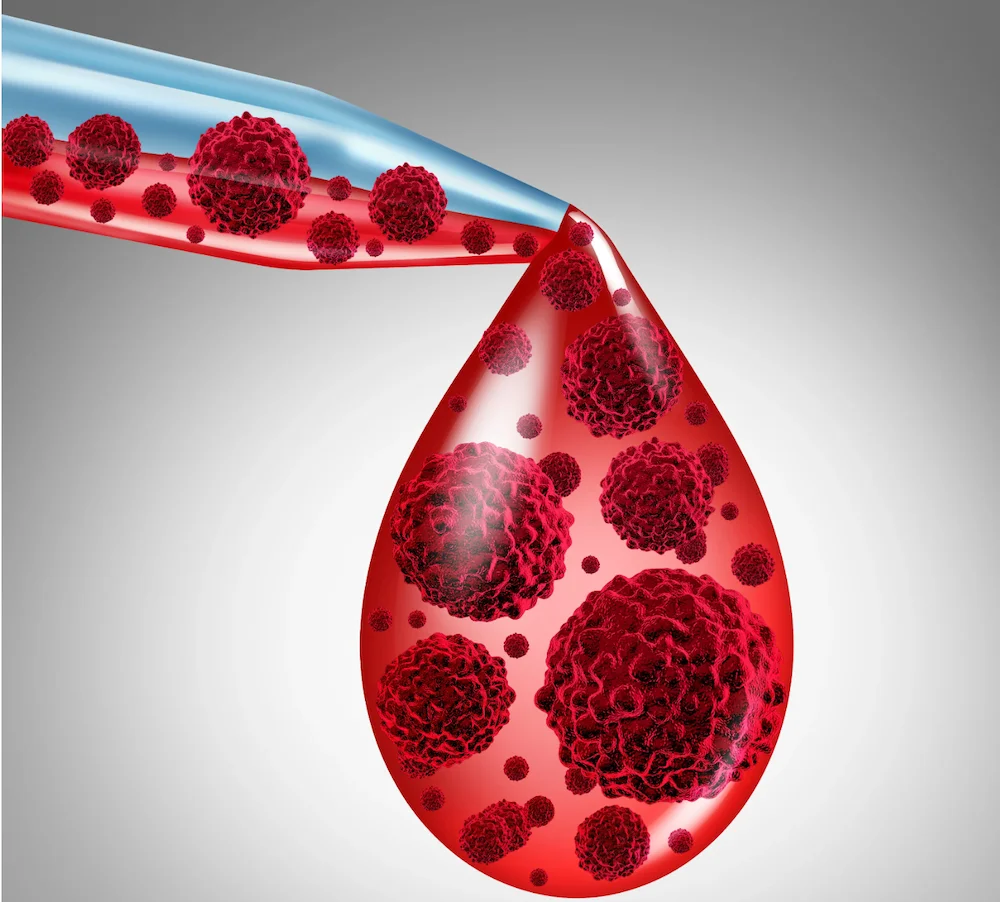News & Articles

6 Common Types of Blood Tests (e.g. Cancer Blood Test) Explained

Blood tests: Clearing the air
There are many different types of blood tests. Here’s a quick look at the most common ones.
Blood tests are one of the most common medical procedures that you may undergo.
Some are used to assess your general state of health as part of a physical examination, some track how well you are coping with chronic health conditions and how well the medicine is working, some are used to screen for genetic conditions, and some are preliminary tests that detect more serious health conditions, including cancer.
Most blood tests are fairly simple and quick: A trained person like a nurse or phlebotomist will take a blood sample, usually from a vein in your arm, and send it to a laboratory for testing. The results may take anywhere from a day to a week.
Do you need to prepare for a blood test? It really depends on what the test is for. Some tests require no preparation, as they are meant to check what your blood is like under normal conditions. Other tests may require you to fast – that is, not eat or drink anything starting from the previous night (usually midnight) until your test the next morning.
There are many different types of blood tests. The most common ones include:
1) Full blood count (FBC) test
This measures the level of red blood cells (which carry oxygen from your lungs to other organs of your body), white blood cells (which help to fight and prevent infections) and platelets (very small cells that help blood to clot, prevent bleeding and bruising). FBC is the most common blood test and is an important check for anaemia and other conditions affecting the blood cells.
2) UE blood test
This checks your kidneys and therefore, may detect signs of kidney disease. It is also an important test for people who have diabetes, high blood pressure or heart disease.
3) Liver function tests (LFTs)
This group of blood tests monitor the health of your liver and is a commonly ordered test for liver disease.
4) Blood cholesterol test
This checks the level of “good” and “bad” cholesterol in your body. Regular testing may be needed as high levels of blood cholesterol have no symptoms, yet is a main contributor of an increased risk of heart attack and stroke.
5) Blood sugar test
This measures the amount of glucose, a sugar, in your blood, and is used to help diagnose diabetes. It is also used to help those who already have diabetes to manage their condition.
6) Cancer blood tests
These and other laboratory tests are often the first tests done to guide a diagnosis when cancer is suspected. While the blood tests cannot confirm whether you have cancer or not, they can help your doctor determine what further tests or procedures are needed. Cancer blood tests include:
a) Full blood count (FBC) test
By checking if there are too many or too few of a type of blood cell, or presence of abnormal cells, this common blood test can provide useful clues to help doctors decide if they should proceed with more tests.
b) Blood protein test
This examines various proteins in the blood, and can help to detect certain abnormal immune system proteins that may be higher in people with multiple myeloma.
c) Tumour marker tests
This checks for chemicals (called tumour markers) that are produced by some cancers. However, as higher levels of tumour markers can sometimes be caused by non-cancerous conditions, this test is not a foolproof method in diagnosing cancer, and cannot be used on its own.
Still, tumour marker tests are generally accepted as helpful after a cancer diagnosis, as they can help doctors determine if the cancer is growing or responding to treatment. Tumour markers include:
- Prostate-specific antigen (PSA) for prostate cancer
- Cancer antigen 125 (CA 125) for ovarian cancer
- Cancer antigen CA15-3 for breast cancer
- Alpha-fetoprotein (AFP) for liver cancer
- Human chorionic gonadotropin (HCG) for germ cell tumours in the testicles or ovaries
It is important to note that while blood tests usually meet high standards, they can sometimes be wrong. You may get a false positive result, that is, it shows that you have a condition when you actually do not; or a false negative result, that is, it does not detect a condition that you do have. Many common things can affect blood test results including medications, having a cold, consumption of certain foods, or prior intense physical activities.
If your results came back “abnormal”, it is important not to jump to any conclusions. Make an appointment to see your doctor as soon as possible and ask questions so that you can better understand what the results mean, and whether you should do the same test again or take a different test.
What to do
1) Be honest with your doctor: If you forget to follow the pre-blood test instructions, or are taking certain drugs, or feel unwell, let your doctor know so that he can advise if you should take the test another time.
2) Always keep a copy of your results: This is not only for your own record, but also necessary if you see another doctor or see a specialist.
3) Ask questions: Don’t be afraid to ask questions and get your doctor to explain the tests and results. Some useful questions:
- Why do I need this test?
- What exactly does the test result mean?
- How accurate is this test?
- Based on my results, do I need more or other tests? What about treatment?
Written by Kok Bee Eng
| TAGS | blood cancer, blood disorders, tumour markers |
| READ MORE ABOUT | Breast Cancer, Liver Cancer, Multiple Myeloma, Ovarian Cancer, Prostate Cancer |
| PUBLISHED | 13 November 2018 |
